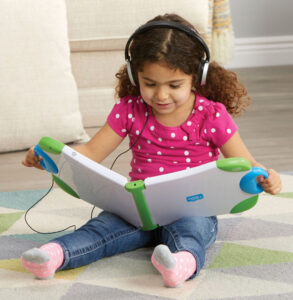- La Feria Community Holds Succesful Business Mixer Event
- Little Nashville to Take Place in Downtown Mercedes
- Lions Basketball Captures District Gold
- La Feria ISD Students Compete in Regional Chess Tournament
- Lions End First Half of 32-4A on a High Note
- La Feria ISD Held Another Successful Parent Conference
- Strong Appearance for Lions at Hidalgo Power Meet
- LFECHS Students Get to Meet Local Actress
- Students Participate in Marine Biology Camp
- Two LFECHS Students Qualify for All-State Band
How to Help Your Child Prepare for Kindergarten
- Updated: August 22, 2017
(StatePoint) Kindergarten is an exciting time for children, but it can also be a stressful time of change — not just for little ones, but for parents, too. Although each child is unique and develops at his or her own pace, most educators and experts agree that four key areas of development are essential for further growth and achievement in school.
To help your child prepare for kindergarten and make a smooth transition, here are a few ways to support these key areas of development at home:
• Vocabulary and Oral Language Development: Encourage your child to communicate through words. Have your child tell you a story, asking questions that invite description. For example, if your child says a dog was chasing a stick, ask what color was the dog? Did he run fast or slowly? Was the stick big or small? In public, give your child opportunities to speak for him or herself or make requests. If he or she is asked what they want to eat and drink at a restaurant, let your child reply, even if you know the answer.
• Social-Emotional Skills: Children will use social-emotional skills every day once in kindergarten, whether they’re asking a teacher for help, being polite to classmates or following instructions. Scheduling a fun, unstructured play date is a great way to let children interact with peers, helping them learn to share and express themselves through play.
• Small Motor Control: Developing small motor skills can be as easy as coloring with your child and cutting with scissors — anything that gets those fingers and toes moving! Other great activities include putting puzzles together, building with blocks, throwing, catching and kicking a ball, riding a tricycle as well as activities like running, jumping and climbing.
• Attention to Sensory and Visual Detail: Paying attention to one’s senses is a mindful practice that can help prepare children for the academic world of kindergarten. Noticing textures, smells and tastes, and using language to describe these details, fosters vocabulary development and encourages children to compare and contrast their experiences. At snack time, ask your child to describe the food with words like sweet or sour, crunchy or juicy, rough or smooth. When playing with puzzles, ask your child to sort the puzzle pieces and then describe what colors, patterns, edges, or other visual details the pieces share.
Parents may find certain tools useful towards helping children learn core school and life skills. For example, LeapFrog’s LeapStart Learning System gets kids excited about counting, learning to read, problem solving and more with fun, re-playable activities. An ergonomic stylus reads invisible dots on every page, triggering questions, challenges, songs, jokes and more. Engaging new content featuring popular children’s characters and the availability of LeapFrog’s acclaimed Learn to Read series give children the tools they need to build tomorrow’s skills today.
Don’t worry if your child hasn’t mastered all his or her letters, sounds and numbers by the time school starts. Children come to kindergarten at many different levels. The teacher will practice these skills with your child throughout the school year, but you can help by continuing to reinforce them at home.



